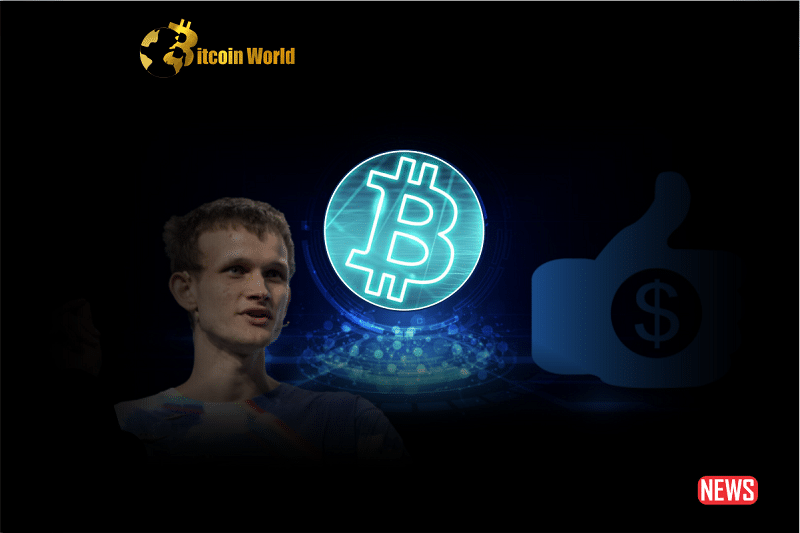The cryptocurrency world is buzzing after Ethereum co-founder Vitalik Buterin weighed in on a critical topic for Bitcoin: scalability. Imagine a bustling digital marketplace where transactions are swift, cost-effective, and private. While Bitcoin has long reigned as the king of cryptocurrencies, Buterin suggests it needs to evolve to truly realize this vision. His proposition? Embracing scalable solutions, particularly zero-knowledge (ZK) rollups.
Why is Scalability a Hot Topic for Bitcoin?
For years, the scalability of blockchain networks has been a central debate. Think of it like rush hour on a single-lane highway. When too many cars (transactions) try to pass through at once, traffic jams (delays and higher fees) are inevitable. Bitcoin, in its current form, faces similar constraints. Buterin, during a recent Twitter space hosted by Bitcoin developer Udi Wertheimer, highlighted this very point, drawing parallels with Ethereum’s own scaling journey.
What Exactly are Zero-Knowledge (ZK) Rollups?
Let’s break down this somewhat technical term. ZK-rollups are essentially off-chain protocols that operate on top of a main blockchain, like Ethereum. Imagine building express lanes next to our busy highway. These “express lanes” process a large number of transactions quickly and efficiently. The magic lies in how these transactions are verified. Instead of the main chain verifying each transaction individually, ZK-rollups bundle them together and generate a cryptographic proof – a “zero-knowledge proof” – which verifies the entire batch without revealing the individual transaction details. This offers a powerful combination of scalability and privacy.
Here’s a simple breakdown of the benefits:
- Increased Throughput: Process significantly more transactions than the main chain.
- Reduced Costs: Lower transaction fees for users.
- Enhanced Privacy: Transaction details are not publicly visible on the main chain.
- Security: Inherits the security of the underlying blockchain through on-chain smart contracts.
Ethereum’s Scaling Success: A Blueprint for Bitcoin?
Buterin pointed to Ethereum’s experience as a valuable case study. Ethereum has actively explored and implemented various scaling solutions, including ZK-rollups and Plasma. He specifically mentioned Optimism and Arbitrum as successful examples of “rollups” that have demonstrably improved the network’s capacity.
Consider these Ethereum scaling solutions:
| Solution | Description | Key Benefit |
|---|---|---|
| ZK-Rollups | Off-chain protocols using zero-knowledge proofs for transaction verification. | High scalability and enhanced privacy. |
| Optimistic Rollups (e.g., Optimism, Arbitrum) | Off-chain protocols that assume transactions are valid unless proven otherwise. | Significant throughput improvement. |
| Plasma | Framework for building child chains that handle transactions off the main chain. | Increased transaction capacity. |
Bitcoin’s Current Scaling Strategies: Are They Enough?
Currently, Bitcoin primarily relies on the Lightning Network for scaling. The Lightning Network is a layer-2 solution that enables faster and cheaper Bitcoin transactions by creating a network of off-chain payment channels. While effective for microtransactions, Buterin suggests that additional solutions might be necessary for Bitcoin to broaden its use cases.
The Rise of Bitcoin Ordinals: A Sign of Change?
Interestingly, Buterin also acknowledged the impact of Bitcoin Ordinals. These allow for the inscription of data, including digital art, onto the Bitcoin blockchain. While not strictly a scaling solution, Ordinals have undeniably injected new energy into the Bitcoin ecosystem. Buterin himself praised the resurgence of builder culture sparked by their popularity. The numbers speak for themselves, with over $210 million in trading volume by the end of June, showcasing a renewed interest in expanding Bitcoin’s capabilities.
Can Bitcoin Embrace ZK-Rollups? What are the Hurdles?
While Buterin’s suggestion is compelling, implementing ZK-rollups on Bitcoin is not without its challenges. Bitcoin’s architecture is different from Ethereum’s, and adopting new technologies requires community consensus and careful consideration. Some potential hurdles include:
- Technical Complexity: Implementing ZK-rollups requires significant technical expertise and development effort.
- Community Adoption: Gaining consensus within the Bitcoin community for such a significant change can be a lengthy process.
- Potential Trade-offs: Any new technology introduces potential trade-offs that need to be carefully evaluated.
Looking Ahead: What Does This Mean for Bitcoin’s Future?
Buterin’s comments highlight a crucial juncture for Bitcoin. Will it remain primarily a store of value and payment network, or will it evolve to support a wider range of applications? The exploration of scaling solutions like ZK-rollups, coupled with the innovative spirit demonstrated by the Ordinals movement, suggests a potential shift. The conversation is open, and the future of Bitcoin’s scalability is a topic that will undoubtedly continue to be debated and developed within the cryptocurrency community.
In Conclusion: A Scalable Future for the King?
Vitalik Buterin’s perspective serves as a valuable catalyst for discussion within the Bitcoin community. His emphasis on scalable solutions, particularly ZK-rollups, underscores the importance of innovation for Bitcoin’s long-term growth and utility. While the path forward may not be straightforward, the ongoing dialogue and experimentation within the Bitcoin ecosystem offer hope for a future where Bitcoin can truly scale beyond its current limitations and potentially unlock a new era of possibilities.
Disclaimer: The information provided is not trading advice, Bitcoinworld.co.in holds no liability for any investments made based on the information provided on this page. We strongly recommend independent research and/or consultation with a qualified professional before making any investment decisions.



